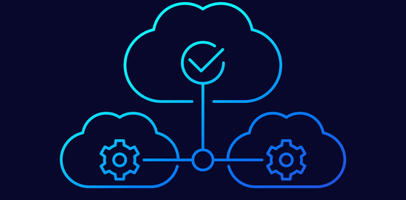Are you moving your contact center platform to the cloud? With over 50% of contact centers taking this step, you’ll be joining a rapidly growing community. If you’re still unsure, here are five clear benefits of cloud-based platforms. They:
- allow an omnichannel customer experience.
- accommodate the use of remote agents.
- provide the flexibility to adjust capacity on demand.
- are 83% more likely to have a formal process for assessing agent productivity*.
- are 31% more likely to use data and analytics tools*.
- 27% less costly*.
- suffer from 35% less downtime*.
- have a 4.5% customer abandonment rate compared to a 6.2% rate experienced by on-premise contact centers*.
*Source - Talkdesk
Deciding to move to the cloud is one matter. Ensuring the migration runs smoothly is another altogether. How do you achieve a disruption-free transition? Whether you’re considering a full migration to the cloud or a hybrid arrangement, the answer lies in testing. For this to be effective, you need a testing plan, which is where Occam’s ETS Discovery tool comes in.
Establish a baseline
The way to start is by being clear about where you are right now. Establish your current baseline and document all customer journeys and channels. It might be that several of your current customer journeys have developed organically. They may well be supported by undocumented, out-of-date legacy systems. This is particularly true of IVRs that have, over time, been consolidated and updated. To determine the baseline for an IVR, consider using a discovery-mapping solution to crawl through the call flows and automatically document how the IVR behaves today.
Create functional tests as you design
For tests to be effective, they need to be created as part of the design process. This guarantees that you test directly against design specifications. From a CX point of view, this means that Functional and Regression testing and journey design are interdependent parts of the same single process.
Functional testing will allow your organization to test the performance of their applications to make sure they’re working at the correct levels. You’ll see clear improvements over manual processes, both in terms of time and accuracy. You will also be able to constantly enhance your customer-facing communications without being held up by costly, error-prone testing processes.
Put it to the test
A further phase in risk-proofing your migration is to make sure it operates effectively at scale under pressure. Carrying out a single, one-off load test won’t suffice. You need to perform load testing regularly to check ongoing system and network performance, as well as amendments that were made since the previous test. By using Occam’s ETS to automatically perform your load testing, you’ll be able to quickly and efficiently monitor how your organization’s system performs when handling the highest volumes of concurrent calls.
Continuously monitor
Continuous monitoring of CX degradation in production is key to the success of the testing process. You need to know about any CX issues before they occur in real-time. You will need to set up production monitoring throughout and following migration. With many moving parts in a complex system, there are many points of failure. Ensure that the monitoring covers all key elements:
- customer journeys
- channels
- connections to backend systems
- business rules
- agent routing
You will also need to observe and assess availability, transaction completion, performance, as well as other attributes that are key to CX.
Our cloud migration assurance service replicates high volume call traffic traversing your contact center, from the carrier through to the agent, and identifies defects before they’re launched into your production environment.
Such testing is critical to the success of cloud center migration. Our service demonstrates time and again its ability to provide such a swift and effective testing system.
- The ETS Discovery tool reduces average deployment times by 3 months, thus releasing cloud advantages and savings sooner.
- To exceed the cost of our service, on average fewer than 10 customers would need to be adversely affected by a defect.
- We offer the fastest route to deployment in the market whilst offering a significant ROI against other validation platforms.
Find out more for yourself about the benefits of the Occam ETS. We are a Genesys Appfoundry partner as well as compatible with all major vendors. Book a demo call today.




